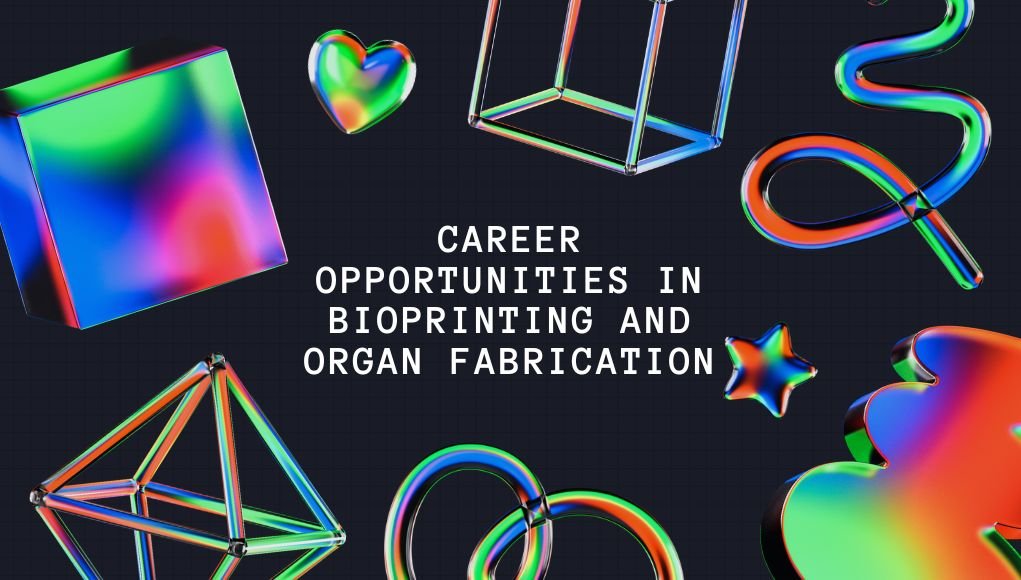The field of bioprinting and organ fabrication stands at the forefront of medical innovation, merging principles from biology, engineering, and materials science to create functional tissues and organs. As this interdisciplinary domain evolves, it offers a plethora of career opportunities for professionals passionate about revolutionizing healthcare.
Entry-level bioprinting technician positions,
Advanced organ fabrication research careers,
Bioprinting companies hiring in 2025,
Tissue engineering internships for graduates,
Job opportunities in regenerative medicine.
Table of Contents
- Introduction to Bioprinting and Organ Fabrication
- Educational Pathways
- Key Skills and Competencies
- Career Opportunities
- Top Institutions Offering Relevant Courses
- Further Reading and Resources
1. Introduction to Bioprinting and Organ Fabrication
Bioprinting involves the layer-by-layer construction of biological materials, utilizing 3D printing technologies to produce tissues and organs. This technique holds promise for addressing organ shortages, advancing personalized medicine, and facilitating drug testing. Organ fabrication extends this concept, aiming to create fully functional organs suitable for transplantation.
2. Educational Pathways
Embarking on a career in bioprinting and organ fabrication typically requires a strong foundation in biomedical engineering, biology, or related fields. Advanced degrees, such as a Master’s or Ph.D., are often preferred, especially for research-intensive roles. Specialized courses and certifications can further enhance one’s expertise:
-
Carnegie Mellon University: Offers an Online Graduate Certificate in 3D Bioprinting & Biofabrication, focusing on the fundamentals of fabricating complex 3D tissues.
-
Century College: Provides a Biofabrication Technologist certificate, emphasizing laboratory-based training in 3D and 4D bioprinting of human tissues and organs.
3. Key Skills and Competencies
Professionals in this field should cultivate a diverse skill set:
-
Technical Proficiency: Expertise in 3D printing technologies, computer-aided design (CAD), and biomaterials.
-
Biological Knowledge: Understanding of cell biology, tissue engineering, and regenerative medicine.
-
Analytical Skills: Ability to analyze complex data and troubleshoot experimental challenges.
-
Interdisciplinary Collaboration: Effective communication and teamwork across various scientific and engineering disciplines.
4. Career Opportunities
The bioprinting and organ fabrication sector offers a range of career paths:
-
Research Scientist: Conducts experiments to develop new bioprinting techniques and materials.
-
Biomedical Engineer: Designs and optimizes bioprinting devices and processes.
-
Regulatory Affairs Specialist: Ensures compliance with governmental regulations for bioprinted products.
-
Quality Control Analyst: Monitors the quality and functionality of bioprinted tissues and organs.
Job prospects are available worldwide, with institutions like Boston Children’s Hospital seeking IDS 3D Printing Technicians.
Additionally, companies such as CELLINK are hiring professionals passionate about bioprinting and tissue engineering.
5. Top Institutions Offering Relevant Courses
Several esteemed universities provide programs tailored to aspiring bioprinting professionals:
-
Massachusetts Institute of Technology (MIT): Renowned for its pioneering research in 3D printing and additive manufacturing.
-
University of Illinois at Urbana-Champaign: Focuses on metal-based additive manufacturing technologies.
-
Penn State University: Advances capabilities in 3D printing with biomaterials, aiming to revolutionize healthcare.
6. Further Reading and Resources
To stay abreast of developments in this dynamic field, consider exploring the following resources:
-
3D Bioprinting of Living Tissues: An overview of 3D-printing living biological tissues with built-in vascular channels.
-
Wyss Institute for Biologically Inspired Engineering: Focuses on bridging the gap between academia and industry by drawing inspiration from nature’s design principles.
-
Unlock Your Career in 3D Bioprinting – Everything You Need to Know: A comprehensive video guide on pursuing a career in 3D bioprinting.
By acquiring the necessary education, honing relevant skills, and staying informed through reputable resources, individuals can position themselves for a rewarding career in the transformative field of bioprinting and organ fabrication.










